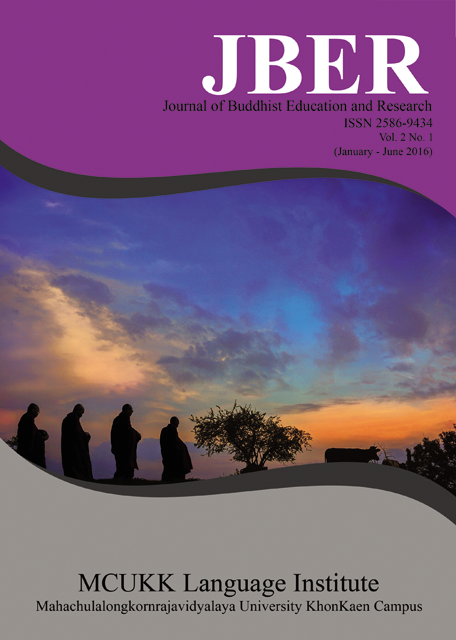Buddhism And Education In Thai Society
Keywords:
Buddhism, Education, Thai SocietyAbstract
Historically speaking, Buddhism has made a deep impact upon Thai society in many respects. From as early as the Sukhothai period (1238 – 1378), it has played an important role. Thais, both men and women, accepted Buddhism as a way of life, which was interwoven in their lives from birth to death. Buddhist monasteries have been, and even at present, continue to be, centers of the Thai villagers’ life and a place where many activities are carried out all the year round. The monks residing in the village monastery have been the spiritual leaders of the people and have elicited worship and respect from the laymen in general. Throughout the Thai countryside, at almost every village, a monastery forms the center of activities. The people regard the monastery as belonging to them all; it is felt to be the common property of the supportive villagers. The monastery is, therefore, a unifying center which functions as an integrating and binding part of Thai society as a whole.





